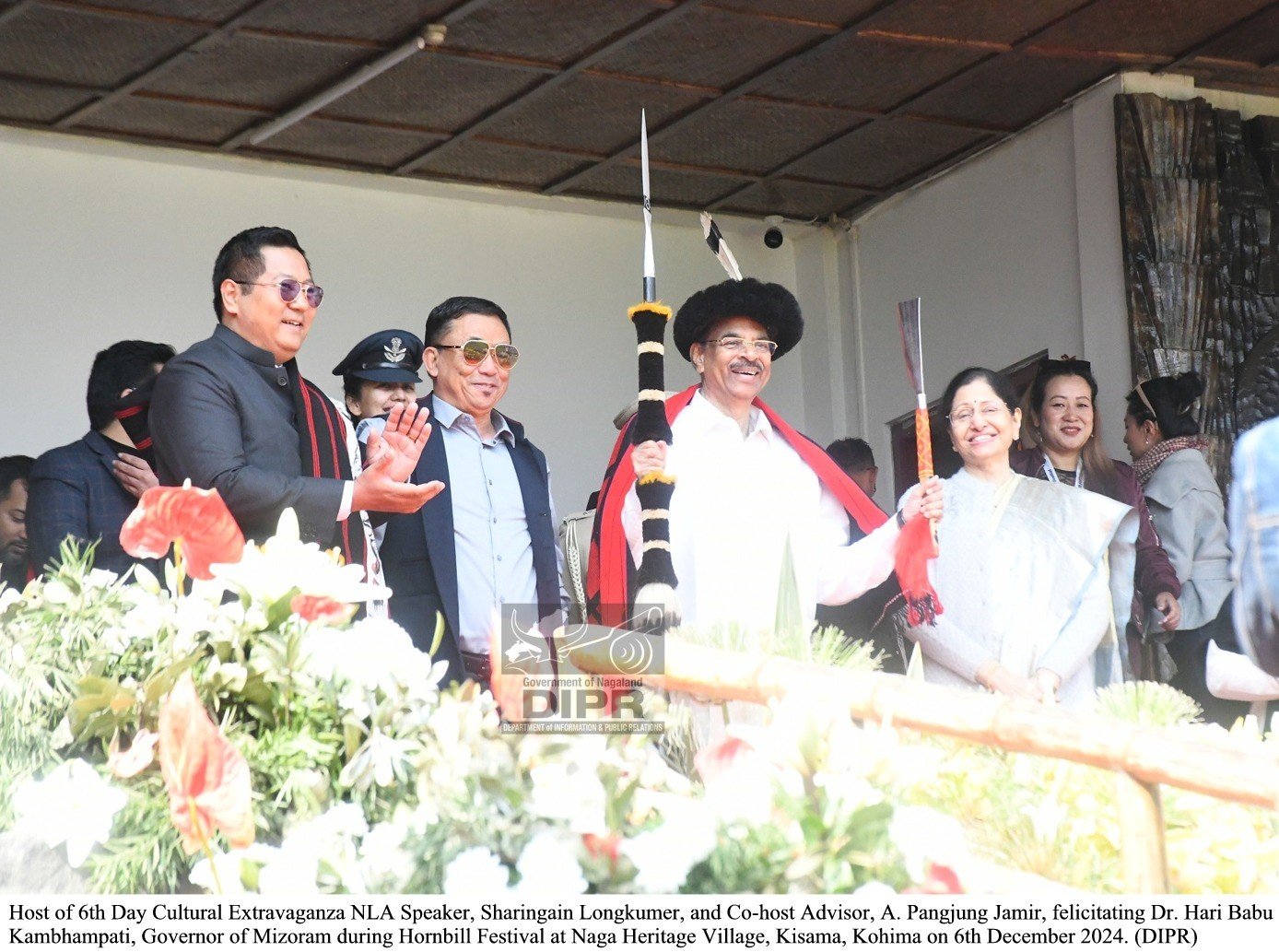The Hornbill Festival 2024 continued to celebrate the vibrant cultural tapestry of Nagaland with dynamic performances on its sixth day. Cultural troupes from across the state and beyond showcased their traditions through dances, songs, and rituals, leaving audiences captivated.
The day featured three sessions hosted by prominent dignitaries. The morning session was hosted by the Speaker of the Nagaland Legislative Assembly (NLA), with A. Panjung Jamir, Advisor for Fishery & Aquatic Resources, as the co-host. Dr. Hari Babu Kambhampati, Governor of Mizoram, and Kedir AWOL Omar, Head of Regional Delegation, South Asia, ICRC, Geneva, were the honoured guests.
The afternoon session was hosted by Deputy Chief Minister, Yanthungo Patton, who is also in charge of Home and Border Affairs, with S. Keoshu Yimchunger, Advisor for Youth Resources & Sports, as the co-host. Honoured guests included Director General, AR, Lt. Gen. Vikas Lakhera, AVSM, SM, and Anshu Manish Khalkho, Director (A&F), NHIDCL.
The evening session was hosted by Deputy Chief Minister Y. Patton and S. Keoshu Yimchunger, with the same distinguished guests.
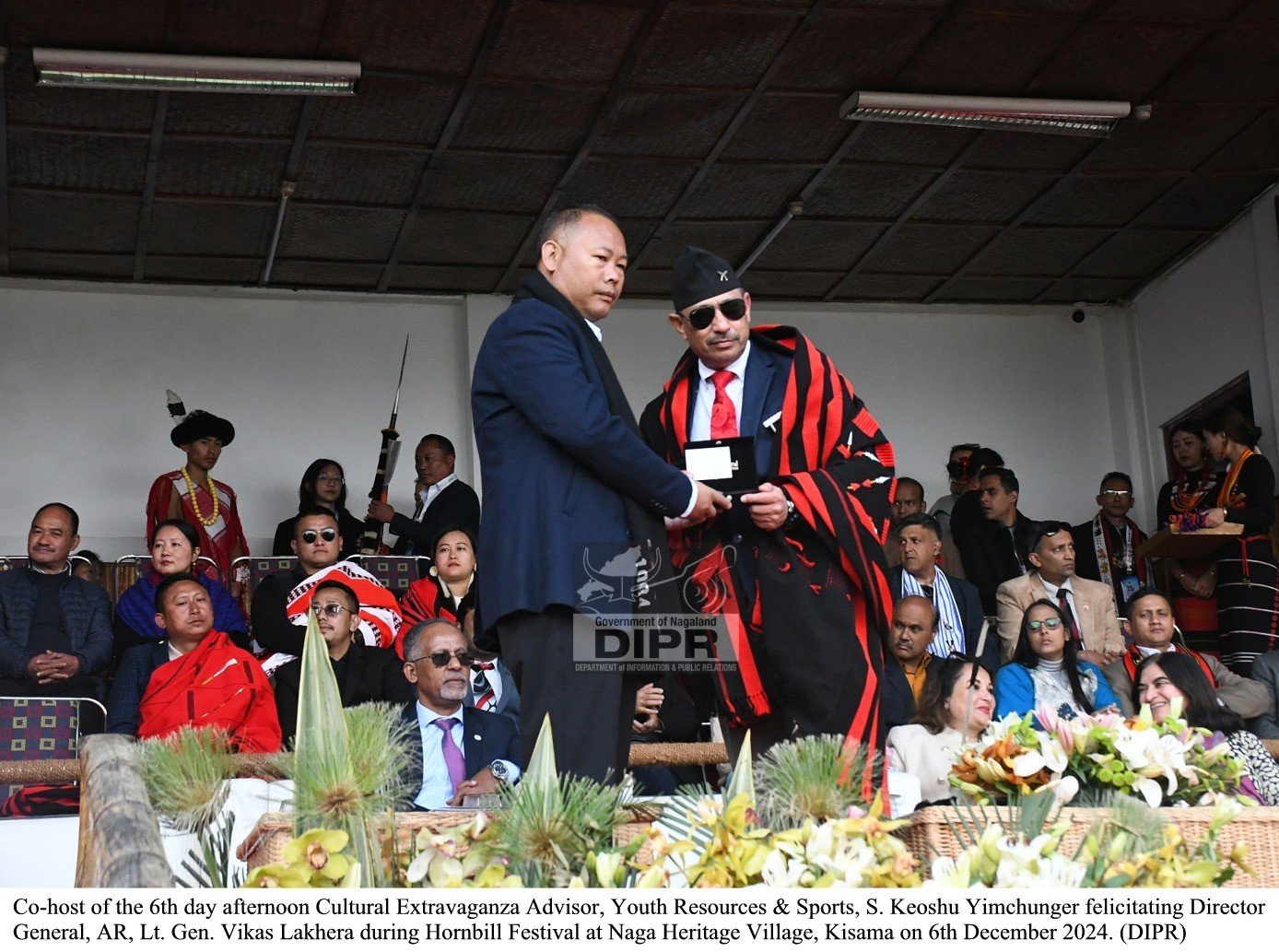
Performances and Cultural Highlights
Konyak Cultural Troupe: We Pheak Wante Lokpu Hem – A song honoring warriors and preserving the art of spinning cotton yarn.
Yimpu Ayo Hem/Lemthao Yongpu – A mourning song sung during misfortunes, offering solace to bereaved families.
Lotha Cultural Troupe: Eramoren Oli Ejon – A traditional cultivation song sung during paddy field farming, symbolizing unity and hard work.
Ao Cultural Troupe: Tsüksenba – A demonstration of rice pounding, accompanied by songs of love and honor, highlighting a significant cultural practice.
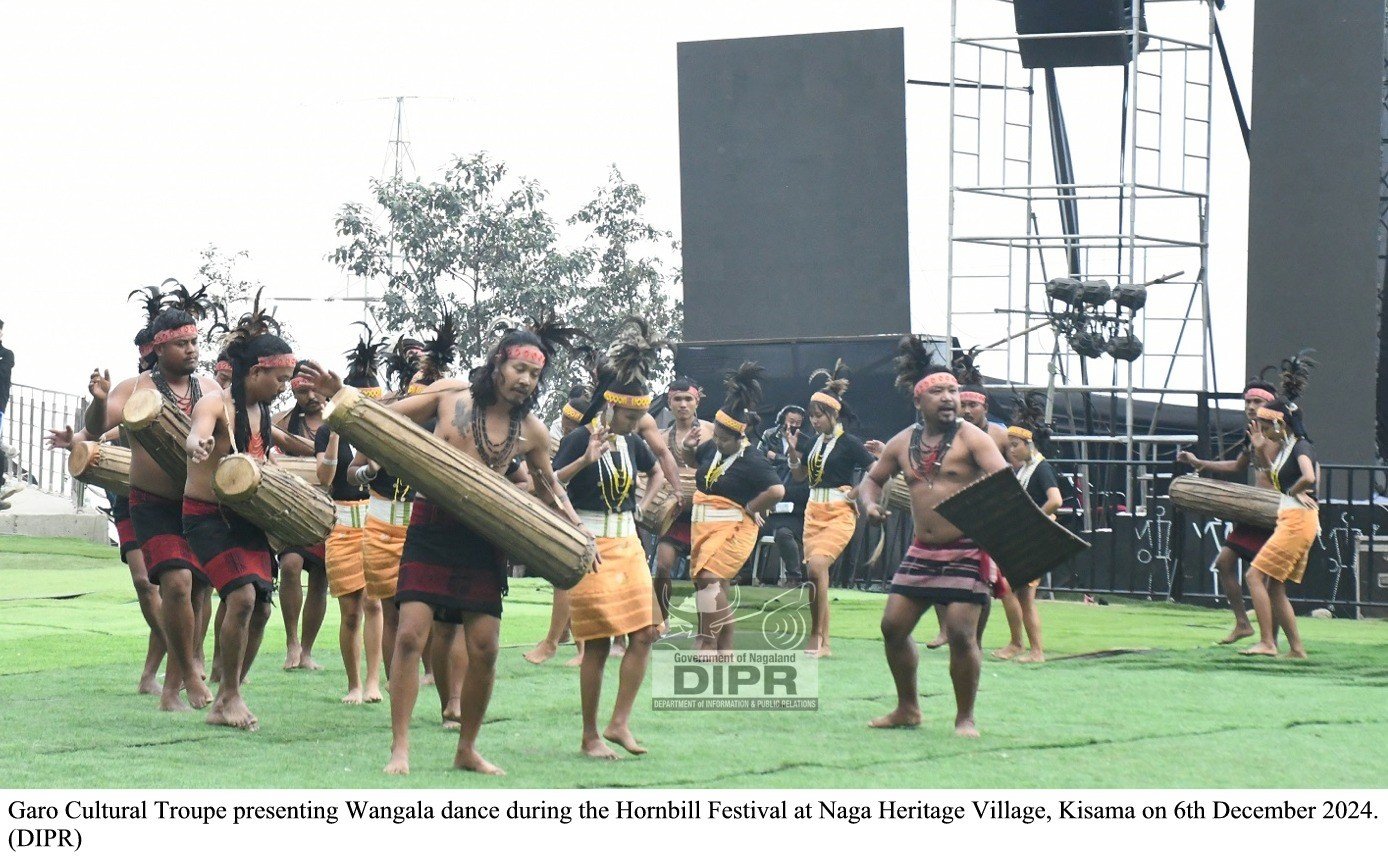
Garo Cultural Troupe: Warping Sika Game – A traditional strength-based game played during the Wangala Festival.
Angami Cultural Troupe: Liephie Pfhe – A folk song sung during preparations for jhum cultivation, celebrating teamwork among farmers.
Tikhir Cultural Troupe: Jih Sho Ooh (Mülong Sütok Kin) – A melancholic rice-pounding song expressing the struggles of a poor girl.
Sumi Cultural Troupe: Amalimi Kuphulu – A traditional practice of treating the brother-in-law with a grand feast during festivals.
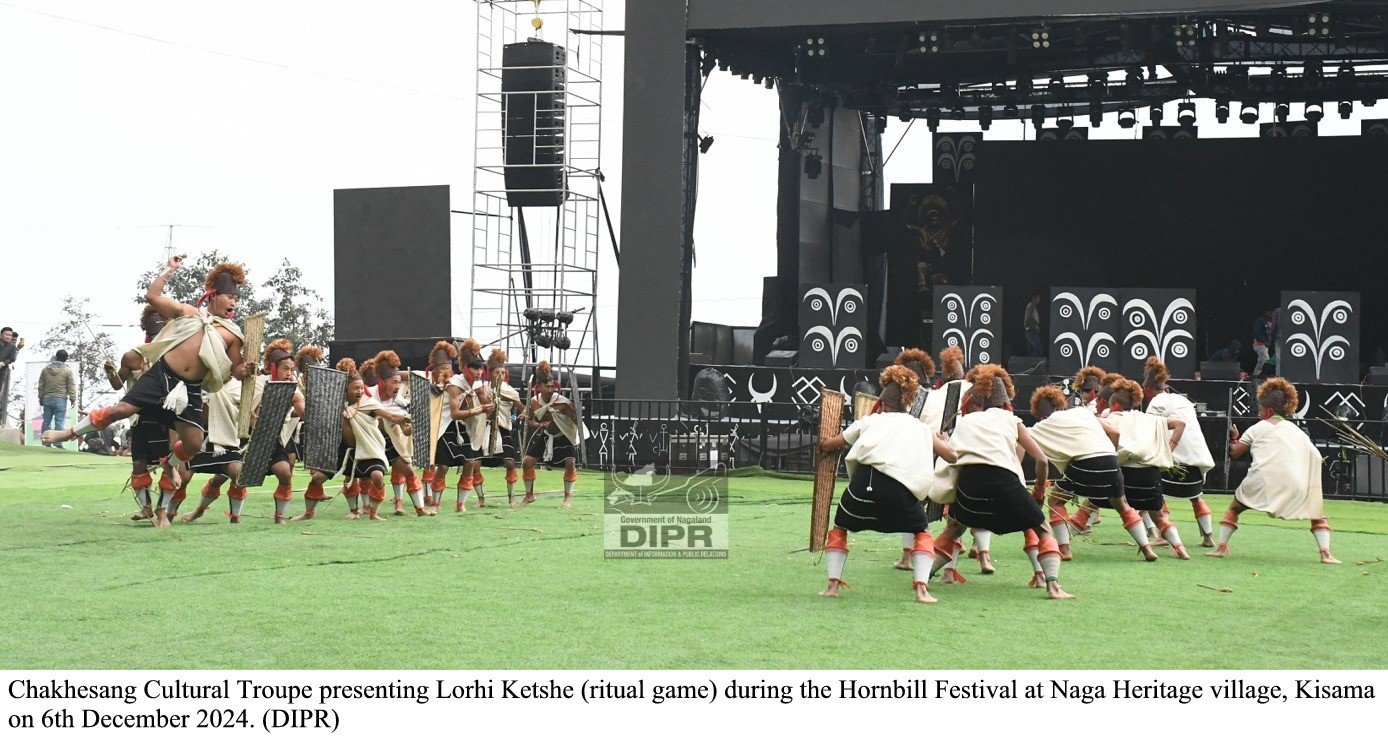
Chakhesang Cultural Troupe: Rekhu Kha – A song entreating divine protection for crops during the planting season.
Khiamniungan Cultural Troupe: Eioh Yoah – A victory song marking successful village raids and celebrating valor.
Kuki Cultural Troupe: Lom Lom – A social dance representing the peak of traditional gatherings.
Zeliang Cultural Troupe: Kalang Kathiubo – A demonstration of traditional cotton-making and weaving techniques.
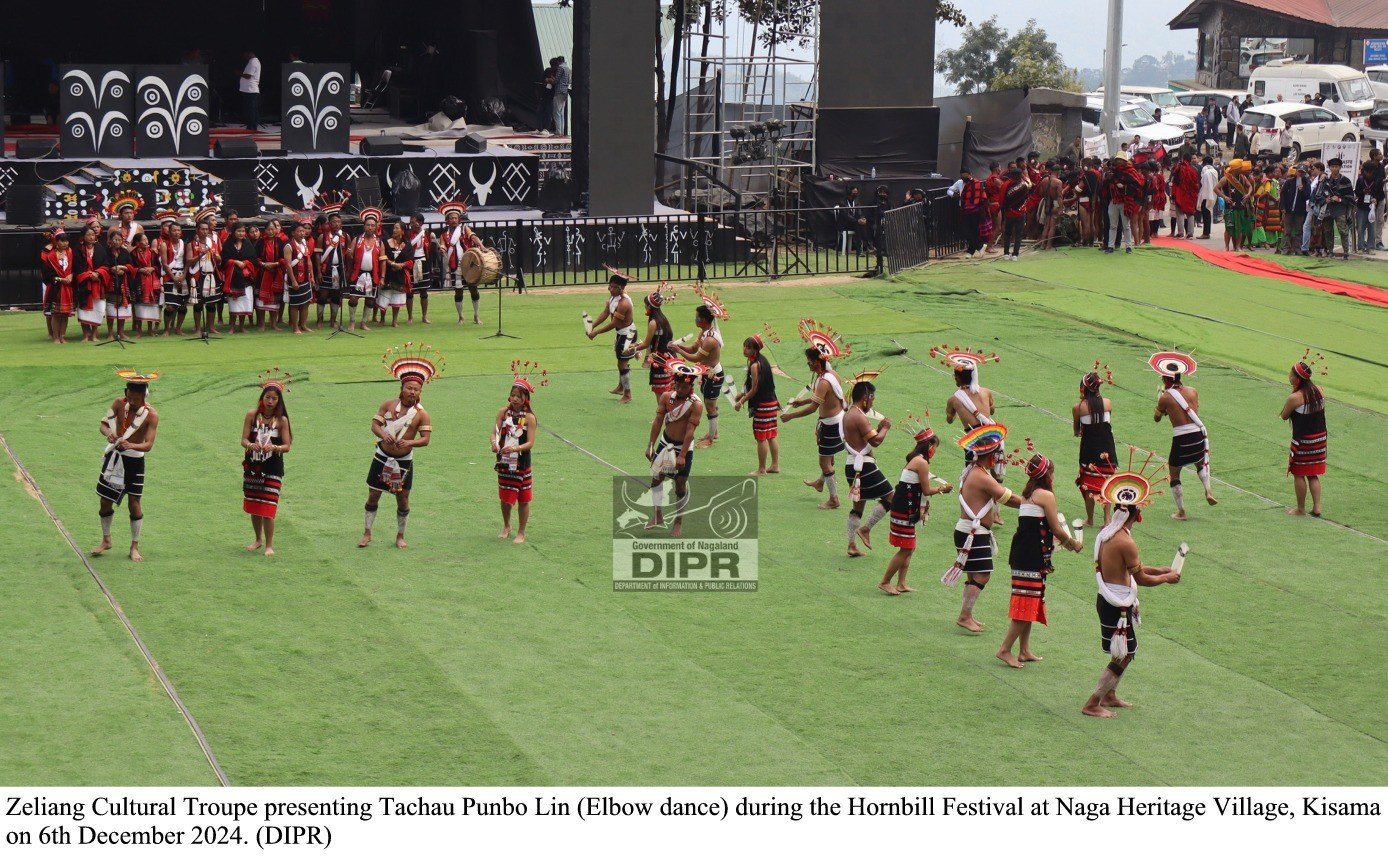
Kachari Cultural Troupe: Bai-Maijai, A folk dance performed during festivals, symbolizing unity and joy.
Yimkhiung Cultural Troupe: Indigenous top-spinning – A traditional game played during festivals to showcase skill and strength.
Rengma Cultural Troupe: A soothing lullaby showcasing traditional melodies.
Sangtam Cultural Troupe: Kijing Khi – A victory song sung by men to celebrate triumphs in war
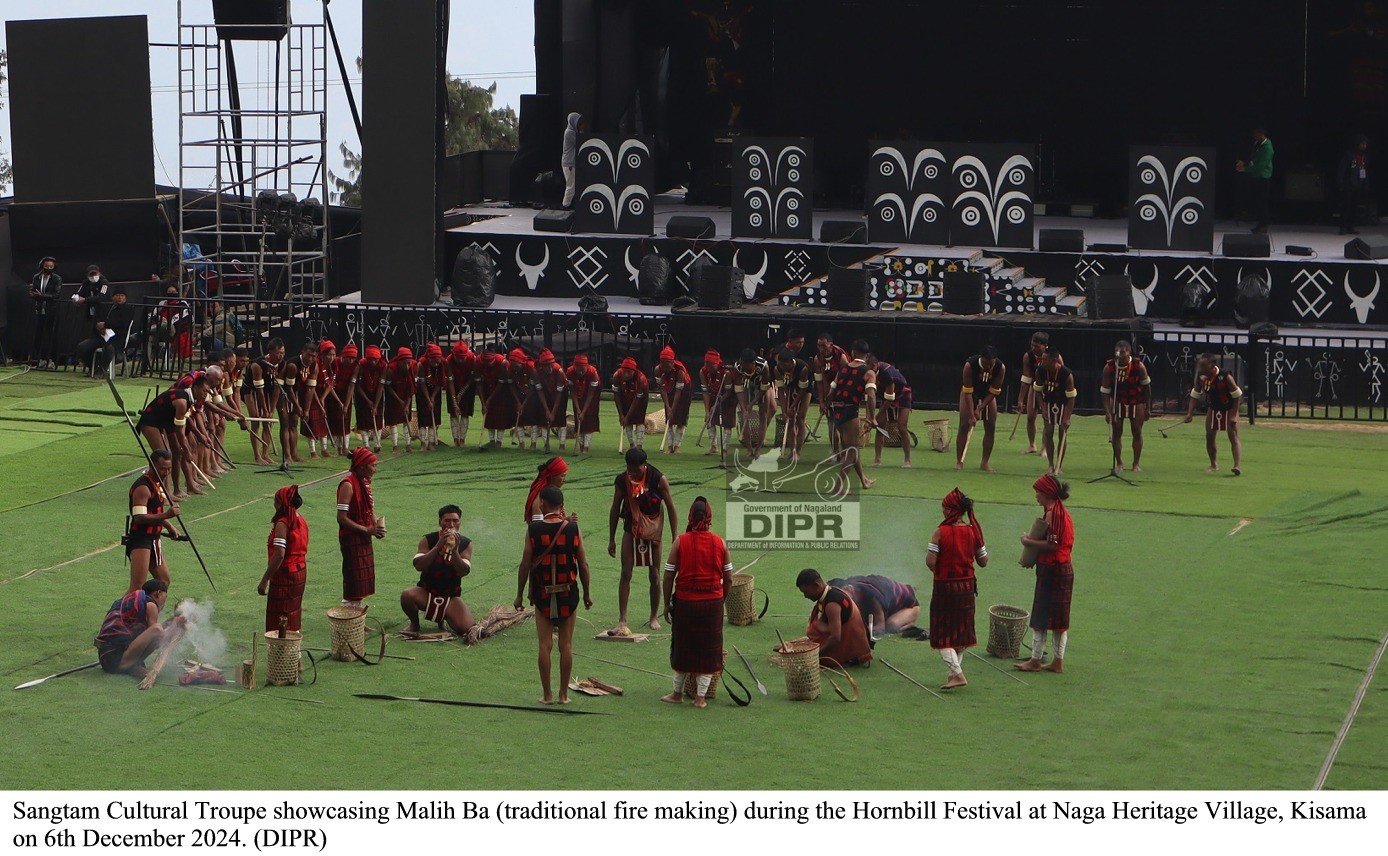
Pochury Cultural Troupe:Asangsolio – A traditional victory dance performed after successful raids.
Phom Cultural Troupe: Chingsang Songola – A ritual to stop heavy rains and protect crops.
The performances were a testament to the rich cultural diversity of Nagaland and its neighboring states, keeping the audience enthralled throughout the day. The Hornbill Festival continues to be a global platform showcasing the traditions and heritage of the region.
